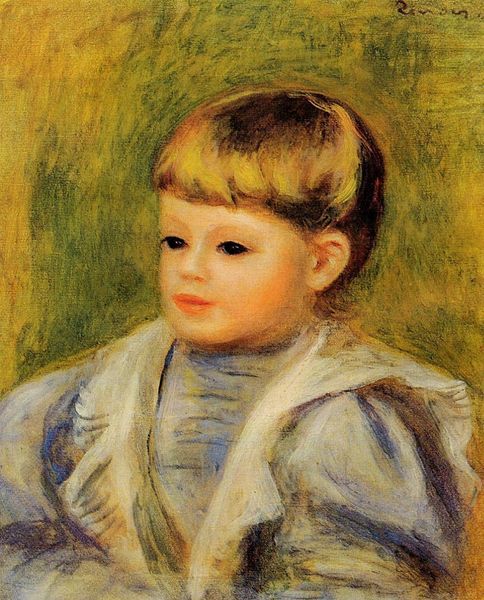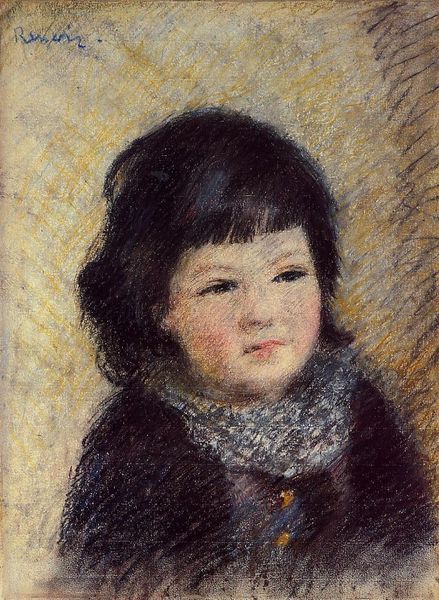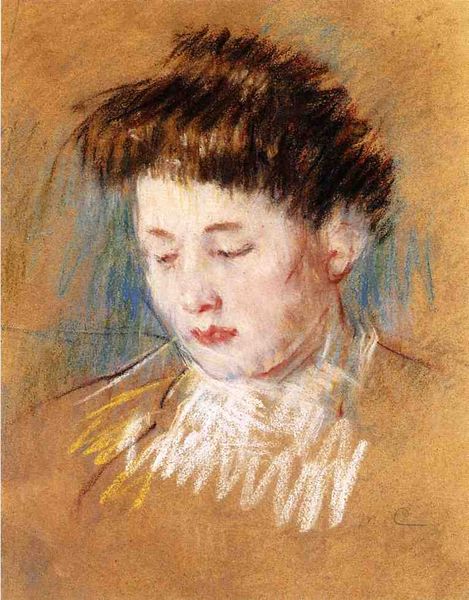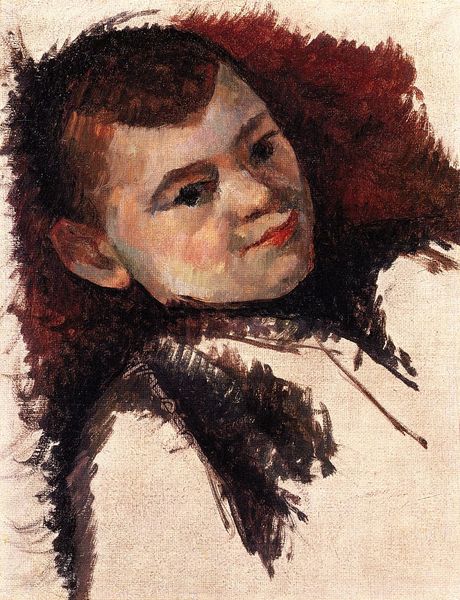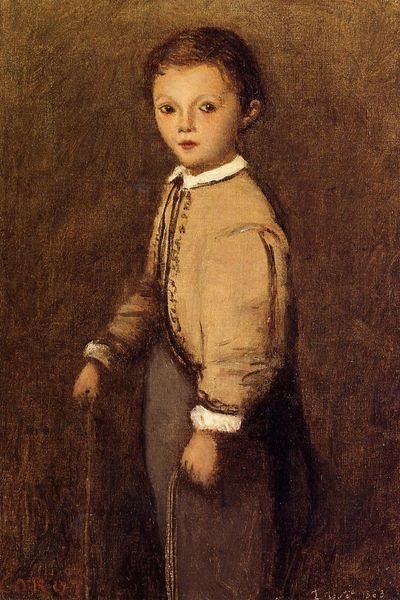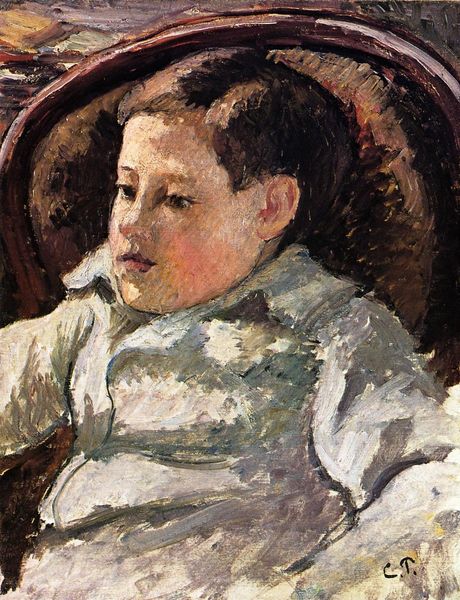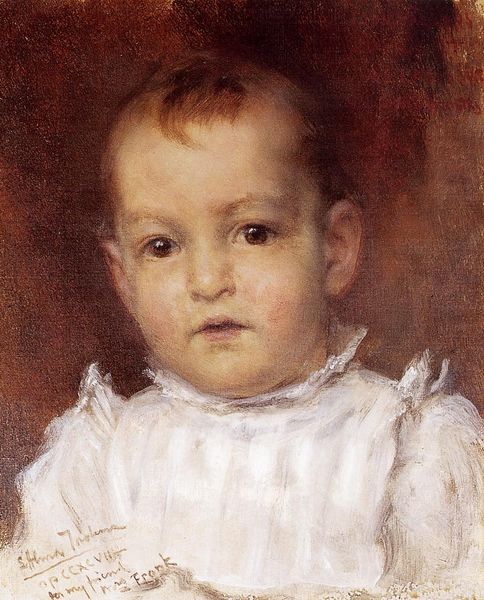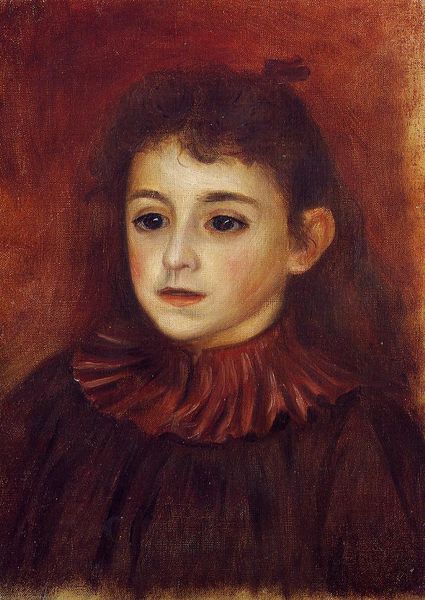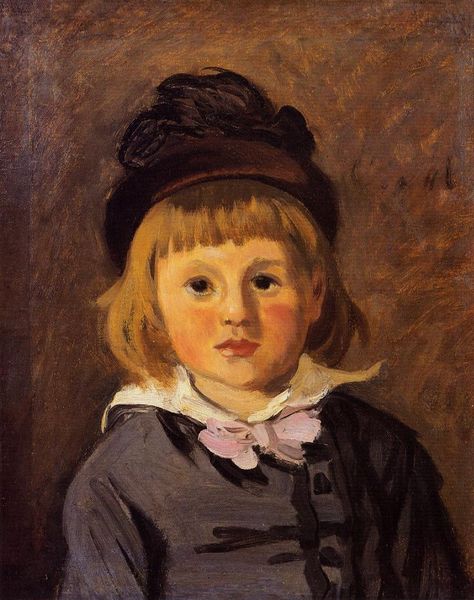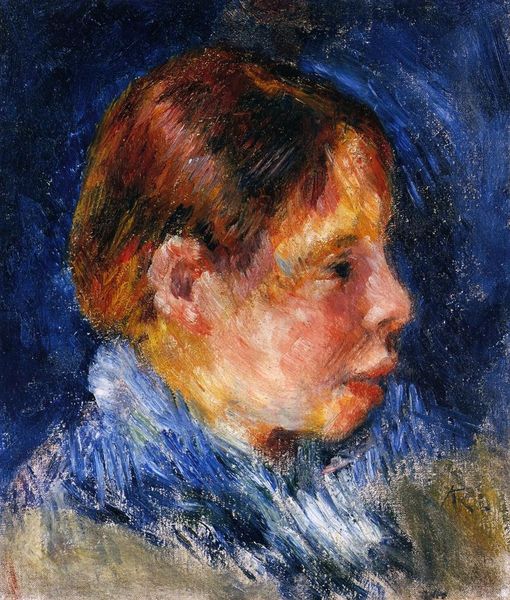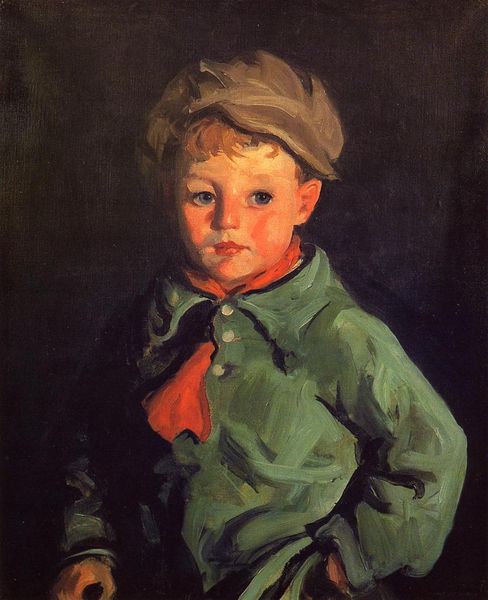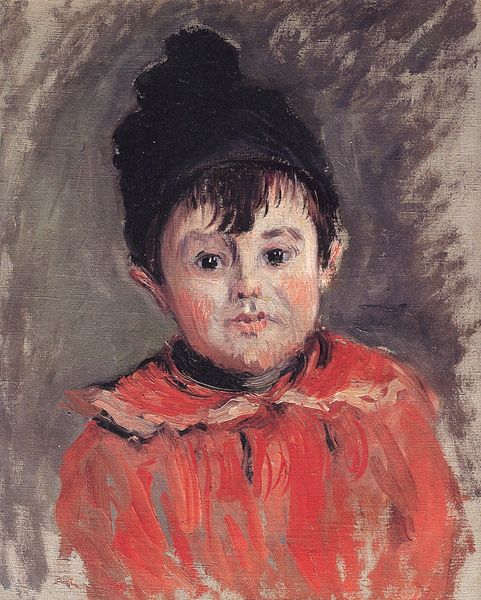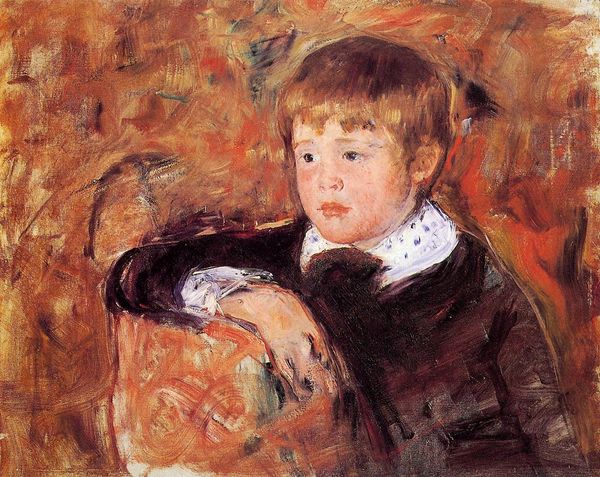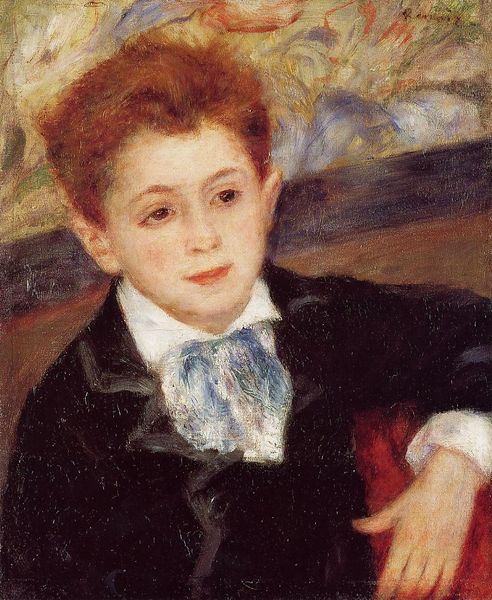
Copyright: Public domain
Paul Cézanne painted this portrait of his son, using oil on canvas, in an attempt to capture not just a likeness, but also the underlying structure of his subject. Notice how Cézanne employs distinct, methodical brushstrokes to construct the face and surrounding space. Each stroke is a deliberate mark, building form through colour and tone, rather than relying on traditional shading or blending. This technique disrupts conventional portraiture, which typically aims for seamless realism. Instead, Cézanne emphasizes the materiality of paint itself, challenging our perception and deconstructing the act of seeing. The composition, tightly cropped and focused on the head, further intensifies this effect. The gaze of the child is direct, yet the fragmented brushwork creates a sense of detachment. This tension between presence and abstraction is central to Cézanne’s project, reflecting a broader modernist concern with the limits of representation. The portrait becomes an exploration of the inherent qualities of painting itself.
Comments
No comments
Be the first to comment and join the conversation on the ultimate creative platform.
